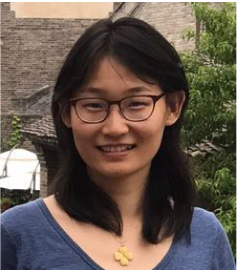
Adjusting for genetic confounders in transcriptome-wide association studies improves discovery of risk genes of complex traits
November 17 @ 1:00 pm – 2:00 pm
Statistical Bioinformatics Seminar
Dr Siming Zhao, Dartmouth Giesel School of Medicine
This is an online event held via Zoom: https://uni-sydney.zoom.us/j/85114748391

Many methods have been developed to leverage expression quantitative trait loci (eQTL) data to nominate candidate genes from genome-wide association studies. These methods, including colocalization, transcriptome-wide association studies (TWAS) and Mendelian randomization-based methods; however, all suffer from a key problem—when assessing the role of a gene in a trait using its eQTLs, nearby variants and genetic components of other genes’ expression may be correlated with these eQTLs and have direct effects on the trait, acting as potential confounders. Our extensive simulations showed that existing methods fail to account for these ‘genetic confounders’, resulting in severe inflation of false positives. Our new method, causal-TWAS (cTWAS), borrows ideas from statistical fine-mapping and allows us to adjust all genetic confounders. cTWAS showed calibrated false discovery rates in simulations, and its application on several common traits discovered new candidate genes. In conclusion, cTWAS provides a robust statistical framework for gene discovery.
Subscribe to our seminar mailing list
Find out more about the Statistical Bioinformatics seminar series

Dr Siming Zhao
Dr Siming Zhao received her Bachelor’s degree from Tsinghua University in Beijing, China. She obtained her Ph.D. in genetics from Yale University under the supervision of Dr. Richard Lifton at Yale. After that, Dr. Zhao moved to University of Chicago for her postdoc studies, co-advised by Drs. Matthew Stephens and Xin He. There, she developed computational methods to study the genetics of cancer and other complex diseases. In 2021, she started an independent research group at the Department of Biomedical Data Science at Dartmouth College. Her research group is interested in the role of genetic variation in human diseases and uses computational methods to translate large-scale genomic data to disease mechanisms.
Twitter: @SimingZhao06